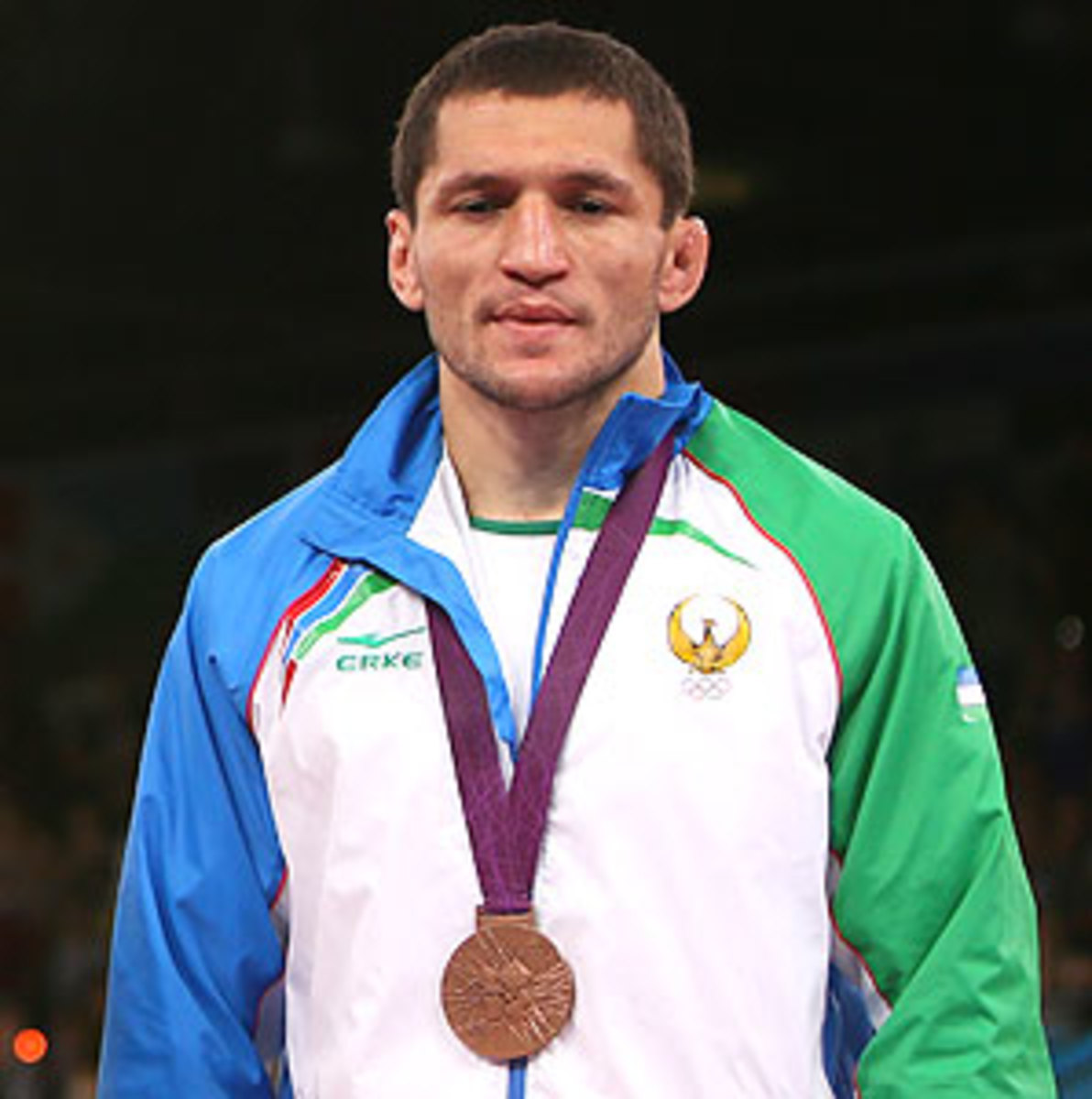IOC strips Uzbekistani wrestler of Olympic medal for doping
LAUSANNE, Switzerland (AP) -- The International Olympic Committee stripped a London Games bronze medal from an Uzbekistani wrestler Wednesday because of a doping violation.
The IOC disqualified Soslan Tigiev from the 74-kilogram freestyle class. The case was first reported by The Associated Press on Tuesday.
Tigiev tested positive for the banned stimulant methylhexaneamine on Aug. 10 after winning on points in one of the two bronze-medal matches.
"The NOC (National Olympic Committee) of Uzbekistan is ordered to return to the IOC, as soon as possible, the medal, diploma and medalist pin awarded to the athlete," the IOC said in its ruling.
The IOC said Tigiev's opponent, Gabor Hatos of Hungary, will be upgraded to bronze.
Tigiev becomes the second athlete from the London Olympics to be stripped of a medal because of a doping violation.
Nadzeya Ostapchuk of Belarus had her gold in the women's shot put revoked by the IOC the day after the closing ceremony. She tested positive for the steroid metenolone.
Wrestling's governing body, known by its French initials FILA, has been asked to "modify the results" of the London event and "consider any further action," the IOC said.
Tigiev faces being suspended for a period ranging from several months to two years.
The World Anti-Doping Agency classes methylhexaneamine as a "specified" substance, which might have been consumed without intent to dope. Athletes can receive a reduced sanction if they can prove how a substance was ingested.
The 29-year-old wrestler, who also won silver at the 2008 Beijing Olympics in the same class, can challenge any sanction at the Court of Arbitration for Sport.
The gold medal in his event was won by Jordan Burroughs of the United States, who beat Sadegh Saeed Goudarzi of Iran in the final. The second bronze went to Denis Tsargush of Russia.
Tigiev was the ninth athlete found guilty of a doping offense during the IOC's drug-testing program in London. Most were caught in pre-competition and out-of-competition tests.
The IOC took more than 5,000 urine and blood samples during the London Games. The samples are frozen and stored for eight years, giving the IOC the opportunity to retest them if new detection methods are developed.






